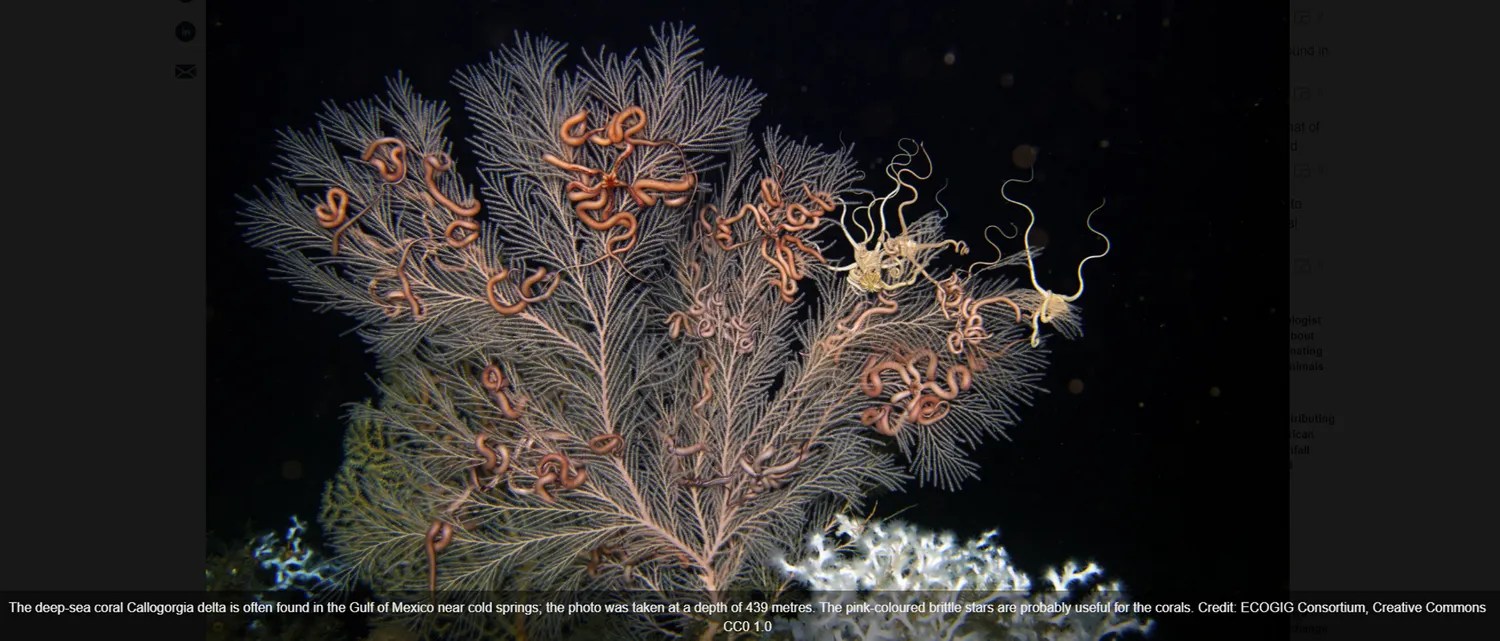Deep-sea corals are home to previously unknown bacteria with extremely small genomes

Two extremely rare bacterial species have been found in the tissue of two deep-sea corals from the Gulf of Mexico by a German-American research team. The corals are found at depths ranging from 300-900 metres, where it is completely dark.
Microbes perform critical functions in corals, yet most knowledge is derived from the photic zone. Mollicutes is a class of bacteria distinguished by the absence of a cell wall and researchers have discovered two mollicutes that dominate the microbiome of the deep-sea coral, Callogorgia delta. These symbionts are abundant across the host’s range, absent in the water and appear to be rare in sediments. Unlike other mollicutes, they lack all known fermentative capabilities, including glycolysis, and can only generate energy from arginine provided by their coral host. The researchers are proposing they are a new bacterial family called the Oceanoplasmataceae. Its exceptionally broad host range suggests that the diversity of this family remains largely undiscovered. Oceanoplasmataceae genomes are the most highly reduced among mollicutes, providing new insight into their reductive evolution and the roles of coral symbionts.
Learn more:
Vohsen, S.A., Gruber-Vodicka, H.R., Herrera, S. et al. (2024). Discovery of deep-sea coral symbionts from a novel clade of marine bacteria with severely reduced genomes. Nature Communications 15, 9508. https://doi.org/10.1038/s41467-024-53855-5.